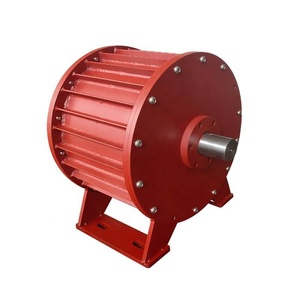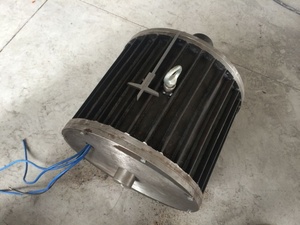Understanding Generator Required: An Introduction
The keyword "generator required" speaks to a critical need within various industries and applications. A generator is a vital piece of equipment, especially in situations where there is a necessity for continuous power supply or as a backup during outages. The term encompasses a diverse array of generator types, each designed to cater to specific power needs and settings, ensuring that operations remain uninterrupted.
Types of Generators Required
When selecting a generator, it’s essential to understand the different types available to determine which best fits your requirements. Here are some common types:
- Portable Generators: Compact and easy to transport, portable generators are ideal for home use, outdoor events, and job sites.
- Standby Generators: These are permanently installed and automatically provide backup power during an outage, making them perfect for homes or businesses looking for reliability.
- Inverter Generators: Known for their quiet operation and fuel efficiency, inverter generators produce clean power ideal for sensitive electronics.
- Industrial Generators: Designed for heavy-duty applications, industrial generators are robust and capable of supplying large amounts of power for construction sites and factories.
Function, Feature, and Design of Generators Required
Understanding the function and accompanying features of generators is imperative for ensuring you choose one that fits your needs perfectly. Here are several key aspects to consider:
- Power Output: Varies by model, typically measured in watts; choose a generator that matches your power requirements.
- Fuel Type: Generators can run on diesel, gasoline, or natural gas, with each option offering various benefits in terms of availability, efficiency, and operational costs.
- Noise Level: Some generators, particularly inverter generators, are designed to operate quietly, making them suited for residential areas.
- Portability: Many generators are equipped with wheels and handles for easy movement while others are fixed in place, requiring careful consideration based on your application.
Applications of Generators Required
The versatility of generators means they are indispensable across various sectors. Here are some of the most common applications:
- Emergency Power Supply: In residential settings, generators act as a reliable backup during power outages, ensuring that essential appliances remain operational.
- Construction Sites: Generators provide necessary power for tools and lighting, allowing construction projects to proceed uninterrupted.
- Events and Festivals: Portable generators facilitate power for food vendors, stages, and lighting, making outdoor events possible.
- Remote Locations: Industries such as mining or oil exploration often rely on generators for power in inaccessible areas where traditional utility connections are not available.
Conclusion: Choosing the Right Generator Required
In conclusion, understanding the various types and functionalities of generators required is essential for making an informed decision. By evaluating your specific needs, including power requirements, fuel availability, and intended applications, you can select a generator that enhances your operational efficiency and reliability. Each type of generator offers distinct advantages, catering to a wide range of users, from home owners to industrial operators. Ensure that you consider the aforementioned aspects carefully, to find the perfect generator that fits well within your context, providing peace of mind and reliable power whenever necessary.














